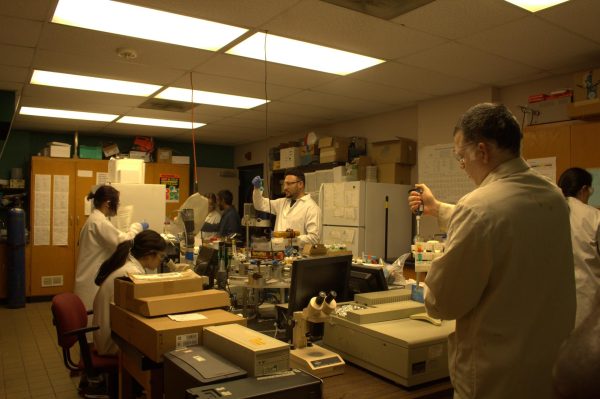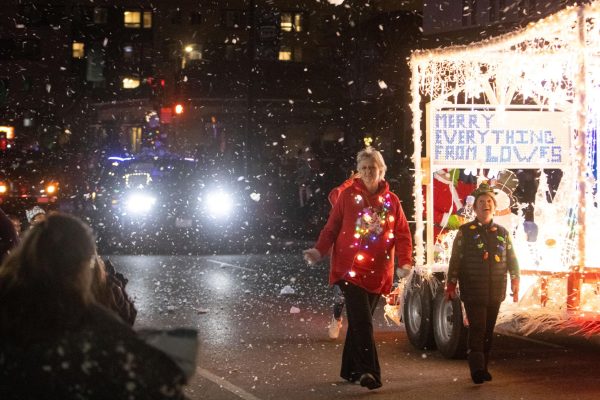Faculty Senate voted down grade adjustment/mental health resolution
In a nonbinding vote, the Faculty Senate decided against a resolution including a “pass/no-pass” grading option following a series of traumatic events during the Fall 2021 semester.
“I think it is extremely hurtful,” Undergraduate Student Government (USG) President Isiah Overton said.
The resolution was about more than the pass/no pass grading, Overton said. It was about providing the student body all of the resources they need to remain successful after such a stressful semester
Advertisement
SR 22-01, which was drafted by the Undergraduate Student Government (USG) and supported by the Graduate and Professional Student Council (GPSC), also advocated for measures to address students’ mental health, including a campus-wide survey, closing the school for three mental health days, and reinstituting fall break.
“This resolution wasn’t just created by students, everyone had a hand in it,” Overton said, including faculty members, members of Counseling and Psychological Services and administrators.
Faculty senators expressed concerns in the meeting that students who take a “pass” grade and move on to higher level coursework won’t all have a full grasp of the material needed to succeed in the later classes.
Overton said that problem should be addressed when professors are designing their courses.
“If you are passing a student that student has met the course requirements, and if you are not passing a student that student has not met the course requirements,” Overton said.
Other faculty senators said they felt the resolution could do more to address Southern Illinois University Carbondale’s (SIU) mental health counseling backlog.
“They didn’t take time to read over the resolution,” Overton said. “The issues that they were expressing were the issues expressed in the resolution.”
Advertisement*
Provost Meera Komarraju said in the meeting most other Illinois schools are not continuing to extend the pass/no-pass grading option to their students.
SIU is in a unique position compared to most other schools because it’s in an extremely economically depressed region, and many of the students the school recruits are from low-income families, Overton said. That’s especially true for Black students who made up the majority of SIUs first-year enrollment increase.
“They did the work to get them down here, now they need to do the work to keep them here,” Overton said.
The advisory body’s meeting, streamed live on YouTube on Tuesday, Nov. 9, stirred controversy among viewers after technical difficulties and an apparent miscount of the vote, originally recorded as passing, led to a second vote in which the resolution did not pass.
After the resolution was tallied as passing in the first round of voting, with 19 in favor, 15 against and 3 abstaining, faculty representatives, including President Yueh-ting Lee, gave follow-up remarks which indicated they’d officially supported the resolution.
“We are just part of the process. Even though most of us voted for it, it doesn’t mean that the the chancellor and the provost will finally approve this,” Lee said.
Following the remarks, the Faculty Senate began department reports for about three minutes, in which time the majority of viewers left the stream, and Secretary Matt Gorzalski interjected to point out there had been a clear miscount in the SR 22-01 vote.
There had been 37 votes counted. The Faculty Senate only includes 36 voting members, and Gorzalski said only 32 senators were present.
“I’m a little uncomfortable. I don’t know if people voted who were ineligible,” Gorzalski said.
Joe Sramek suggested the vote be redone.
“It’s going to take us time, but if you’re really concerned about the vote not being legitimate then that’s the only proper way to proceed,” Sramek said.
President Lee forged ahead with the rest of the Senate business, and the USG resolution vote was picked up again toward the end of the meeting.
Lee asked for suggestions from the senators.
“I feel a little awkward with the USG students having left at this point,” Grozalski said. “They left under one impression. If the vote turns out to be different, then that’s pretty, that puts us in a bad spot.”
Jennifer Brobst, who indicated after the first tally that she’d voted against the measure, initially suggested the vote could be postponed, but backed away from the idea.
“I don’t think that’s a good idea. All along, we needed to respond quickly, and tell them that we care. Let’s just do it,” Brobst said.
Jay Needham supported redoing the vote right away. The resolution failed, with 11 in favor, 15 against and 4 abstaining.
Comments on the YouTube stream indicated viewers were angry about the decision, though it was nonbinding.
“I feel like we had the wool pulled over our eyes,” one user commented.
Another user, apparently USG Vice President Grace Gunn, suggested students voice their concerns by emailing Chancellor Austin Lane and Komarraju.
The comments section on the video has since been disabled.
In an emailed statement, Lee said issues with the senate vote arose from a technical issue in which everyone on the Zoom call, 37 people, received a ballot though there were only 31 eligible voters present.
“We acknowledge that our voting mechanism was technologically not perfect, but we are willing to improve it and make it better in the future,” Lee said.
The faculty members care about students, Lee said in the statement, and will continue to find collaborative ways to support them.
“We as faculty members are just part of this process, and our votes are advisory. It is not the final decision. It is up to the Chancellor,” Lee said.
Overton said Lane has been extremely responsive to USG members this year, and seeks their perspective whenever possible.
“This is not the end of it,” Overton said.
Staff reporter Jason Flynn can be reached at [email protected] and on Twitter: @DEJasonFlynn. To stay up to date with all your Southern Illinois news, follow the Daily Egyptian on Facebook and Twitter.
Advertisement












